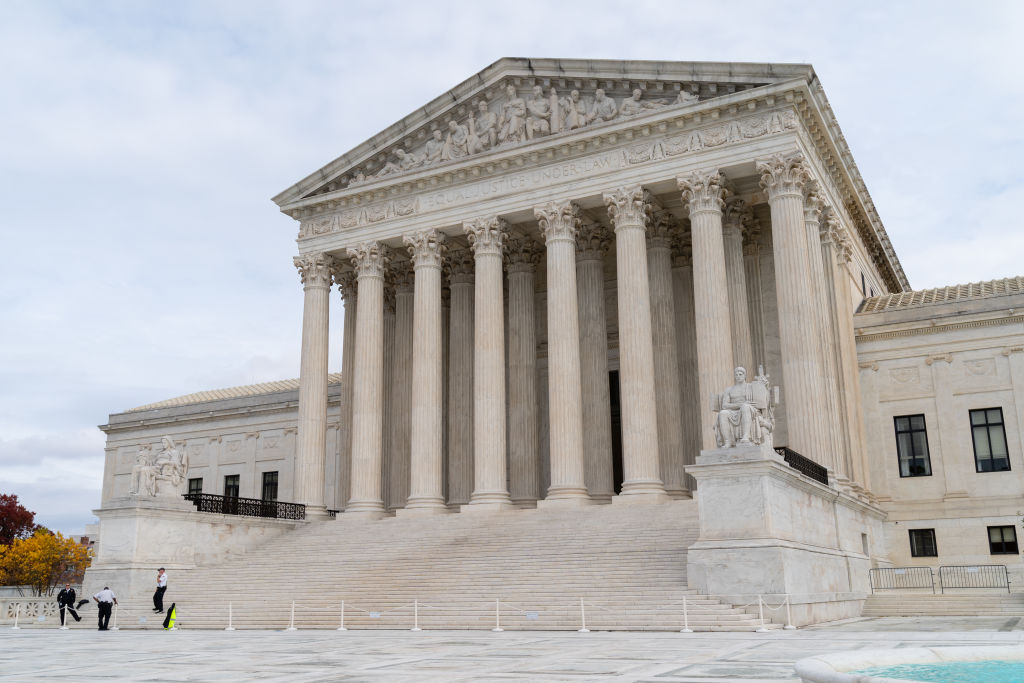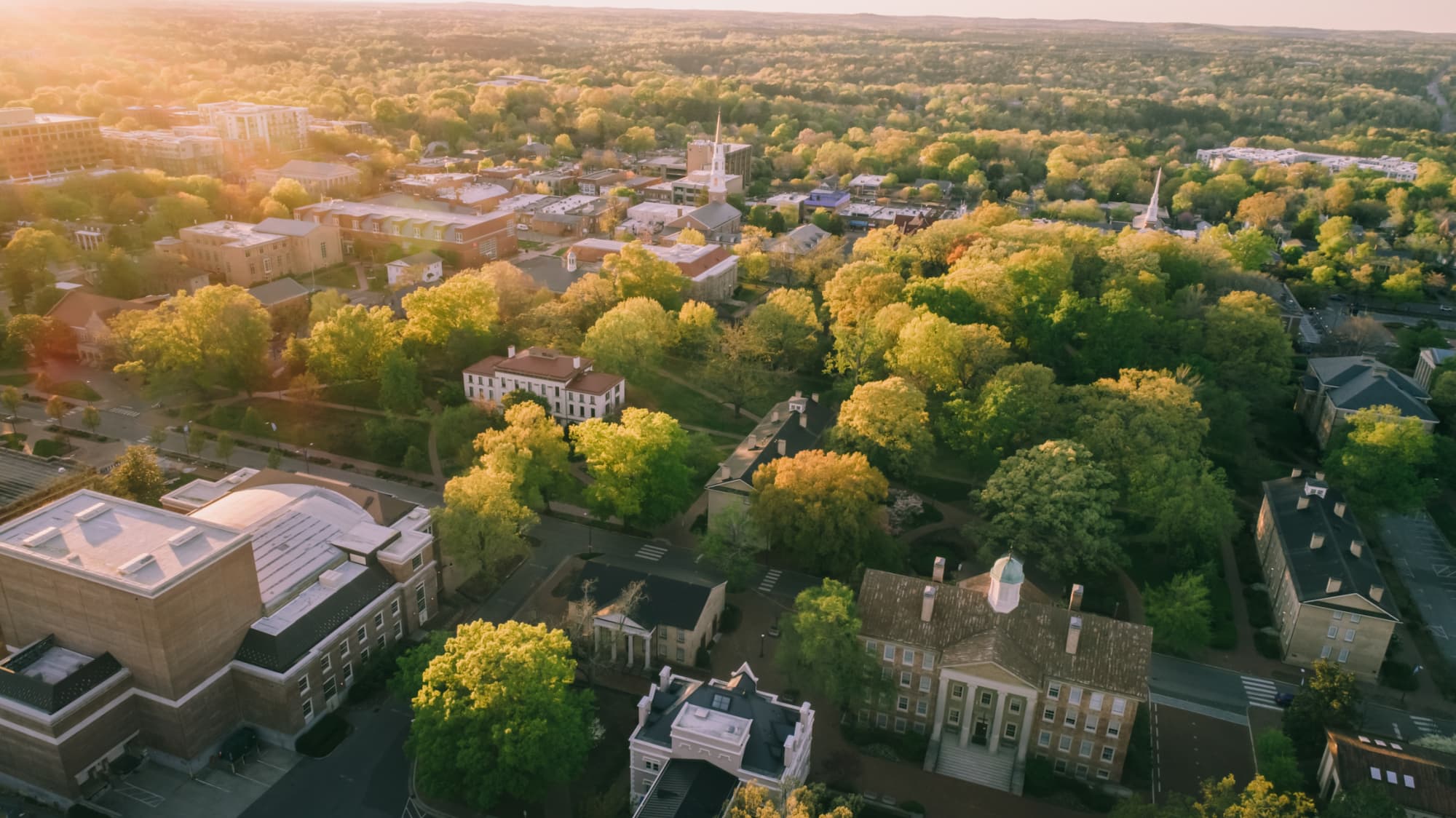Affirmative Action Preserved at Military Academies – For Now
Writer
Editor & Writer
Writer
Editor & Writer

- The Supreme Court's recent decision banning affirmative action exempted military academies.
- Experts say having diverse leadership among military ranks is critical for national security.
- The exemption doesn't include university ROTC programs, which were mentioned in amicus briefs.
- A potential lawsuit and legislative measures threaten to eliminate affirmative action at these academies.
The U.S. Supreme Court's recent landmark ruling on affirmative action essentially eliminates the consideration of race in college admissions — with one notable exception.
Thanks to a brief footnote in the majority opinion, military academies remain exempt from this decision and can continue to take race into account in admissions.
Why did the court carve out this exemption, and what compelling interests do military academies serve that other universities don't?
Supreme Court's Affirmative Action Decision Exempts Military Academies
In the court's 6-3 opinion, Chief Justice John Roberts included a footnote stating that the nation's military academies weren't party to the cases against Harvard and the University of North Carolina and that the lower courts didn't address "the propriety of race-based admissions systems in that context."
Therefore, the majority opinion doesn't apply to military academies — West Point, the Naval Academy, and the Air Force Academy — "in light of the potentially distinct interests [they] may present."
What, exactly, are those "distinct interests"?
Roberts didn't specify, but his footnote references an amicus brief filed by the United States arguing for the importance of maintaining diversity among military leadership. "The government," the brief contends, "has a vital interest in drawing its personnel — many of whom will eventually become its civilian and military leaders — from a well-qualified and diverse pool of university and service academy graduates."
A similar brief, filed on behalf of 35 top former military leaders from all four services, offers a deeper analysis of the issue.
"The importance of maintaining a diverse, highly qualified officer corps has been beyond legitimate dispute for decades," the brief argues. "History has shown that placing a diverse Armed Forces under the command of homogenous leadership is a recipe for internal resentment, discord, and violence. By contrast, units that are diverse across all levels are more cohesive, collaborative, and effective."
Therefore, the military leaders concluded, "the status quo — which permits service academies and civilian universities to consider racial diversity as one factor among many in their admissions practices — is essential to the continued vitality of the U.S. military ..."
Dissenting Opinions Point Out Inconsistencies
In her dissenting opinion, Justice Sonia Sotomayor took the majority to task.
She criticized the selective interpretation of the amicus briefs, which contend that the diversity pipeline includes not only military academies but civilian universities as well.
"The majority recognizes the compelling need for diversity in the military and the national security implications at stake," Sotomayor wrote, "but it ends race-conscious college admissions at civilian universities implicating those interests anyway."
In fact, both briefs explicitly discuss ROTC programs, including those at Harvard and UNC, which provide the military with a steady supply of officers. The brief from military leadership points out that in 2019, 36% of active-duty officers were ROTC-commissioned. More than half (52.6%) of the Army's officer corps that year came from ROTC programs.
What's more, ROTC has been the primary source of minority officers, the brief details, with 29% of Black and 32% of Hispanic officers earning commissions through ROTC in 2019.
"Hindering diversity in universities with ROTC programs," the brief argues, "would adversely affect the pool of recruits entering the military."
The brief also mentions ROTC programs at selective colleges, which are "of particular importance to our military leadership," it notes, adding that Cornell, Dartmouth, Penn, Princeton, Columbia, Yale, and Brown, as well as Harvard, maintain ROTC programs for their students.
"Diversity in the halls of academia," the brief asserts, "directly affects performance in the theaters of war."
So the court's majority opinion selectively excludes military academies yet ignores pleas to maintain diversity at traditional universities whose ROTC programs supply the military with a diverse pool of officers. It also implies diversity among leadership in other sectors — business, law, medicine, education — is somehow unimportant, that a dearth of minority leaders in those fields matters less as a symbolic and practical matter.
"The Court has come to rest on the bottom-line conclusion that racial diversity in higher education is only worth potentially preserving insofar as it might be needed to prepare Black Americans and other underrepresented minorities for success in the bunker, not the boardroom … ," wrote Justice Ketanji Brown Jackson in her dissenting opinion.
Some legal scholars agree that the majority opinion's logic is flawed.
"I think that Justice Sotomayor had it right," F. Michael Higginbotham, a law professor at the University of Baltimore, told CBS News. "It kind of highlights the inconsistencies of the decision of the majority's position. And I don't really understand the exemption for the military academies. They are colleges and universities just like many, many other institutions in the country."
Jessica Levinson, a Loyola Law School professor, believes the end doesn't justify the means.
"If we're concerned that diversity promotes national security," Levinson told CBS News, "then this carveout is such an incredibly narrow way to try and achieve that goal."
Yet the exemption didn't surprise Rodney Smolla, president of Vermont Law and Graduate School.
"The Supreme Court has always — in both liberal and conservative epochs — been very deferential to the executive branch and the military and has often permitted things in the national security context that it wouldn't necessarily permit in other contexts," Smolla told The Hill.
Military Academy Exemption Might Face Legal Challenge
The court's exemption of military academies could face a legal roadblock. Edward Blum, founder and president of Students for Fair Admissions (SFFA), the victorious plaintiffs in the Harvard and UNC cases, emailed the organization's members suggesting SFFA might challenge the court's carveout.
"SFFA is exploring the legality of using race at these institutions …," he wrote. "If you know of any student who was recently rejected from these institutions, or any students who will be applying to any of them, please contact me."
Whether or not SFFA could legitimately pursue legal action in light of the court's decision remains unclear. Presumably, the defendants would be the military academies themselves, which would lean on the court's recent ruling as justification for their race-conscious policies.
"I do not think that the avenue for [SFFA] is to challenge or seek clarification of this [Supreme Court] decision," Philip Catanzano, a lecturer on higher education and law at the Harvard Graduate School of Education, told Bestcolleges in an email. "Nothing is impossible, and perhaps there is a way to clarify a decision post hoc, but here the military academy exemption was pretty clear, not likely an accident by the majority."
But SFFA might have legislative company. U.S. Sen. Roger Wicker (R-Miss.), a member of the Senate Armed Services Committee, recently announced his plan to eliminate affirmative action at military academies via the National Defense Authorization Act (NDAA).
His legislation — the Military Merit, Fairness, and Equality (MERIT) Act — seeks to "further prohibit our military service academies from engaging in race-based affirmative action," Wicker tweeted.
In the House, U.S. Rep. Tom Tiffany (R-Wisc.) advanced a similar measure to prevent the Pentagon from "granting preferential treatment to any person or group based in whole or in part on race."
West Point, Navy, and Air Force fall under Pentagon jurisdiction (unlike the Coast Guard Academy and the Merchant Marine Academy).
For now, the military academies can continue to consider race in admissions decisions, a policy that has increased diversity on those campuses in recent years. From 2000-2021, racial minorities increased from 20% to 36% at West Point and from 19% to 37% at the Naval Academy.
However, about 90% of generals and admirals are white.
The court's military exemption angered the left thanks to its dubious logic and upset some on the right by not eradicating affirmative action entirely. What remains unclear, though, is how minority students at our nation's military academies will view this exemption and the double standard it promotes.
"Die for us," Georgetown Law adjunct professor Arjun Sethi tweeted, "but don't enroll in our schools."
















